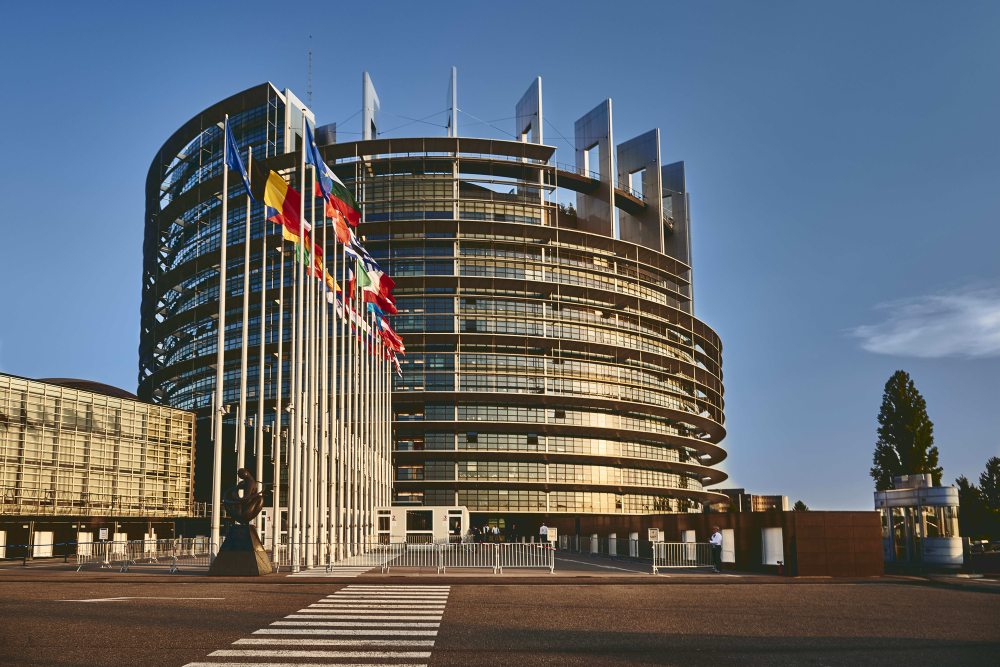Ireland’s accidental Europeanisation
When the European Coal and Steel Community (ECSC) was established in 1952, it had one main goal; to integrate the six founding members’ economies so as to prevent future conflict in Europe. The idea was that a future war would be so costly to each nation’s finances that it would be unthinkable to initiate it. 70 peaceful years later for these founding members, it seems as if this goal has been achieved.
Irish-European Economics
Where does Ireland come into this story? In 1973, the Republic of Ireland thrust itself into the European Economic Community (EEC), an enhanced version of the ECSC, so as to improve its economic prospects. From Independence until 1961, Irish governments had pursued isolationist economic policies, after which a change of government led to a slow and delicate liberalisation of Irish trade strategy.
It was during this slow liberalisation that we joined the EEC. At the time, the UK and USA had a near duopoly over Ireland’s economy. As the UK was planning to join the EEC, to keep access to their market and not to lose our trade with them, we would have to follow suit ourselves. And therefore, after applying in 1967, the UK was admitted to the EEC in 1973, with the Republic of Ireland in tow.
The first major impact of membership for Ireland was a boom through the 1970s. Come the 1980s however, the fact that liberalisation had not been complete led to one of the largest financial recessions in the history of Ireland (only to be topped by 2008), during which Ireland gained the infamous nickname of the ‘sick man of Europe’.
It looked as if Ireland were about to collapse under the weight of mismanagement. In this situation, it was not our two largest neighbours who came to the rescue, but our new European friends, who, through now famous ‘grants’, reinvigorated Irish markets by investing in Irish infrastructure, supporting our agricultural industry, and opening badly needed sources of capital to the Irish banks to ensure we would not default on our loans. Over a period of 44 years, Ireland received no less than a net €41.31 billion adjusted for inflation in direct investment from the EEC.
This made all the difference to the Irish economy. Over a period of 30 years, Ireland went from a shrinking economy to the fastest growing economy in the world, not a small feat. By this point the Irish economy had fully reformed, and the Celtic tiger represented the full bloom of Ireland’s ‘economic miracle’. In 2008, due to mismanagement of this newfound wealth, our economy once again went bust.
To stop the Irish economic system from collapsing, the government of the time decided to bail out the private Irish banks. When it became clear that the Irish government would not be able to fulfil this promise, the EU took on the majority of this debt by providing loans to the Irish government, on the condition that austerity measures be put in place.
This led to a creeping resentment in Ireland towards the EU’s financial institutions, nicknamed ‘the troika’, alongside a growing distrust in political cronyism in Fianna Fáil. These austerity measures would lead to privatisation of Irish resources, large increases in unemployment and in turn homelessness. However, the Irish economy has superficially recovered from this, though we now have the highest debt per capita in the world and a large housing crisis, showing that we have not felt the last of the effects of this recession yet.
Regardless of the woes, the Irish economy has transformed significantly since joining the EU. Yet, there is the common misconception that Ireland remains dependent on the USA and UK from an economic point of view. In the most recent figures from 2019, our main trade partners were other EU member states, making up 42% of Irish trade, while trade with Britain has fallen to 10% and the US has stayed steady, according to CSO statistics. We are now truly an economically European country.
Irish-European Culture
This economic story is reflected in Europe’s effect on Irish society. When Ireland joined the EU, we were an extremely conservative and religious nation. The EU, through its regulations, encouraged change in Irish conservative law, though it was important to note this change was not imposed but only encouraged.
A generation of young Irish, already dissatisfied with the social conservatism prevalent in Ireland, helped encourage this change. Thanks to referendums, one by one this national conservatism, enshrined in the constitution, was removed. With reduction of voting age and recognition of religious equality in the 1970s, votes for non-citizen residents in the 1980s, the Good Friday agreement in the 1990s, and more recently the introduction of same sex marriage, legalisation of abortion, removal of blasphemy, and change to the divorce laws eventually coming in the 2010s.
This is not to mention all the EU treaties passed throughout the same period with large majorities, save the Lisbon treaty, showing the Irish public’s continued support and interest in the European project.
One of the most significant and understated effects of Ireland’s EU membership is peace. Like with the founding members, the EU brought peace to the island of Ireland, especially to Northern Ireland. It did this by providing the framework to allow a pseudo two-state solution.
Since there was very little difference between living in Ireland and the UK, thanks to the standardisation the EU created, the only difference was citizenship. This way, both Irish and UK citizens living in the North of Ireland were given equal access to public services. The peace enabled by the EU membership of these two states can be seen very clearly now with the contentious issue of the post-Brexit border.
Just like the large market Europe provides access to, it also gives many different cultures access to each other. These had a large effect in Ireland as well. Since joining the EU, fewer people have felt the need to emigrate abroad over the decades, cutting out an immeasurable amount of longing for family and home, a feeling that had become so prevalent in Ireland that our songs about it are world renowned. In fact, we now have immigrants to Ireland. Polish, Lithuanians, and Germans, just to name a few, are now an essential part of the societal fabric of Irish towns and cities.
Ireland’s and Europe’s Future
As can be seen, Ireland’s time in the EU hasn’t always been plain sailing. So, after all this, why is Ireland still in favour of the EU?
Well, it seems, because we have bought into the European project. We have seen, and continue to see, for ourselves the benefits of membership. But since we understand this, why don’t we encourage it in other countries?
We see ourselves as a small part of a large union, which is correct. But every member of the union has to play its part if we want to ensure a bigger, and brighter future for this rag-tag group of nations we call the EU. The European project has no historical precedent, and therefore we must discuss and partake in the democratic processes of the supranational organisation to ensure even the small members are heard. If we want this to work, everyone has to help sail the ship.

